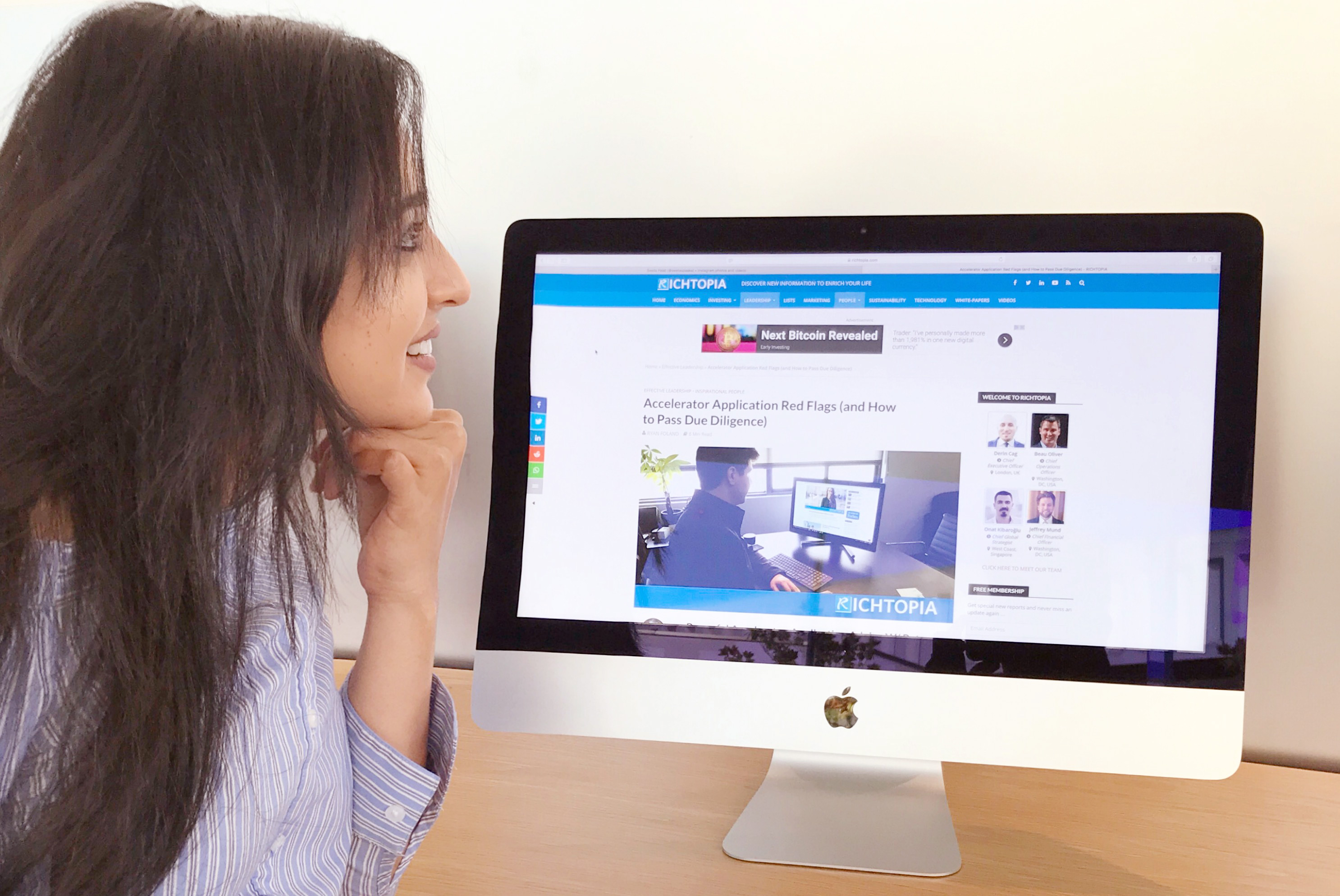5 ways to power-up your business success the Sweta Patel way.
Being a startup founder isn’t easy, and one of the big challenges is setting the tone for your company culture. It’s especially hard to stay cool and calm when you are forced to juggle all aspects of your business.
Meet Sweta Patel, The Oracles Member, Search Engine Top Influencer and founder of SVStartupMarketing.com. She has advised with over 200 startups in Silicon Valley. I caught up with her the other day and she shared some great insights about her experience in helping founders maintain company culture you want by focusing on a concept she calls people-centricity.
From our conversation, here are Sweta’s top five tips:
- Enablement is Your Best Friend
As a founder, you want to hire the best talent out there to help you reach your goals. To hire the best talent, you have to treat them as they are – the best. This means viewing them as experts in their field.
You have to enable them and give them the tools they need to succeed.
This means putting people at the center over technology.
For example, Sweta worked with a CEO who had two options – one, buy a bigger office space in a glamorous building, or two, use the same budget to give his employees better benefits. Even though the glamorous office was more appealing – he chose to give his employees better benefits because their happiness was key to him.
This is exactly what people-centricity means, it’s about building relationships and enabling those who work for you. Give to your employees and you will receive real value in ways that actually grow and scale your company. For the CEO, his choice led to the landlord returning with an unbeatable deal, which allowed him have both options he desired.
However, don’t micromanage them.
Trust me, if you do, your top talent will soon be your competitor’s top talent. Enable your employees by building trust and ensuring your goals are aligned. Don’t get consumed by the little stuff with your team members.
Focus on the end results and take the “personal” from the situation. By doing so, not only will you thrive, but your top talent will also help your company amplify and scale.
- Understand the difference between Empathy and Compassion
The difference between empathy and compassion, can make the difference in how you relate to your employees. While empathy refers more generally to our ability to take the perspective of and feel the emotions of another person, compassion is when those feelings and thoughts include the desire to help.
Avoid using empathetic language.
When you use empathetic language, you end up communicating that you feel sorry for them. An example would be learning that an employee is having issues with their loved one, and you acknowledge it. This helps neither the other person, nor you.
Instead, use compassion to not only be empathetic, but let them know that you are willing to help them. Instead of just acknowledging it, ask them if they want to talk about it. Maybe invite them to dinner, or surprise them with tickets to a fun show. This type of help can mean a lot. As a result, they are likely to work harder and increases productivity because they feel that someone on their team is there to really support them through difficult times.
Everyone wants to feel supported and understood. As founders, you should use compassion and encouragement to get the best out of your team. Compassion goes a long way, especially in high-growth companies.
People-centricity is all about leveling up on compassion. Let your employees know that you understand, and offer to try to help in some way. The extra effort will create a strong connection among your team.
- Using discernment or Judgement
On impulse, do you use discernment or judgement when communicating with your team?
Do you know the difference?
Discernment is the ability to judge well. Judgement is simply an opinion or conclusion you make based on what you see.
Most of us use discernment to get away from situations that don’t resonate with us without judging them. Using discernment over judgement will help you, and your employees, get through situations gracefully without causing friction in other areas of the company.
It is easy to judge, but resist. When you use discernment to navigate through the social jungle of your startup, it helps you build a team that will stick with the company through thick and thin.
People-centric founders use discernment to guide their key employees. Don’t be the founder who gets caught up in your team member’s personal lives and what they do outside of work. This should not be a concern for you. The goals of the company are. You must create a culture of discernment, and doing so will help create a company culture that can excel faster and help you grow.
- Sit down. Be humble.
As a founder, this one may be hard to hear.
Are you the type of founder that functions from an ego-driven place?
If so, you may be outwardly communicating a “hard cookie to crack” demeanor. This does not help your company culture. It’s common for most founders to feel that their company is their baby. After all, you have invested all of your time, energy, and money into making a successful business. It’s instinct to do all you can to protect it.
A founder can be saved from this mindset by using people-centric techniques to re-focus his energy on the people.
The ego has to go.
Humility will go much further in a startup environment than power will. When you can show your values, your company easily becomes one the “best places to work.” If you want to attract top talent and grow your organization, then you must create a culture that clearly states your mission and values.
Make your values known loud and clear. Your employees will have an explicit understanding of what is expected of them and how they can help you succeed in your goals. The culture you develop through this understanding is closely tied with your business brand. I help my clients build brands that support the culture they want to build. If you need help, InfluenceTree can help you amplify your personal and company brand to reinforce your values and culture.
- The Art of Calm
As a founder, you want to come off as the person who values your team no matter what the situation is. Be viewed as a strong leader when faced with conflict, not one that panics under the pressure. When chaos strikes, your employees will look to you for answers.
I studied martial arts throughout my life, and my Sensei would often teach the importance of staying calm in difficult and dangerous situations. I have found this skill translates well to the startup environment.
Sweta does not train in martial arts, but she says that when things goes wrong (and it will go wrong), your employees will look to see how you react, then mimic it. It is up to you to set a positive tone for your company, even when the situation is negative. Beyond anything else, it’s about putting your employees first. People before the situation or the circumstance.
By staying calm and placing company values first, your employees will trust you. They will also have a better understanding of how to help you overcome the problem.
Whether you’re the founder of a startup or the CEO of a long established company, you will interact with your team every day. Make your approach one that is people-centric, and your interactions will help shape the company culture.
Make your communication count.
I hope you will follow Sweta’s insights. By doing so, you can create a company culture that aligns with your goals and visions all while attracting and keeping top talent — the people-centric way!
—Sweta Patel, a startup marketing advisor and founder of Silicon Valley Startup Marketing who has advised for more than 200 early-stage startups and high-growth companies. Follow Sweta on Facebook and Instagram






